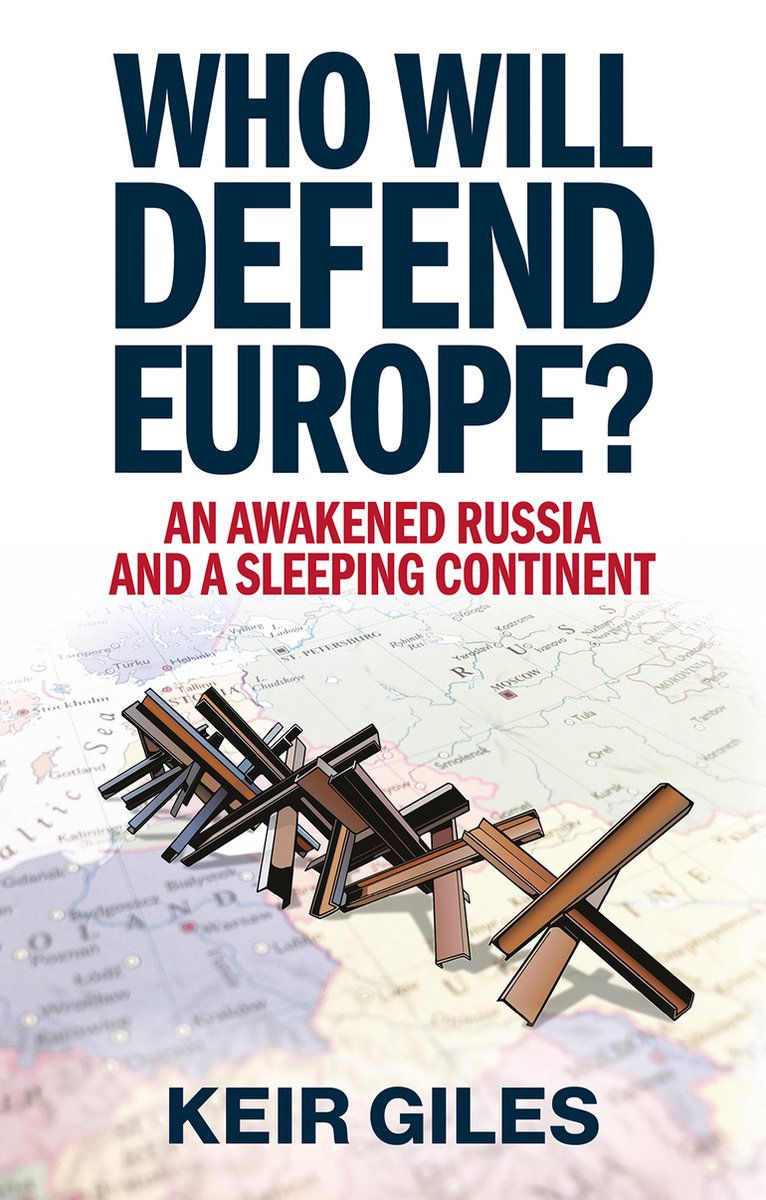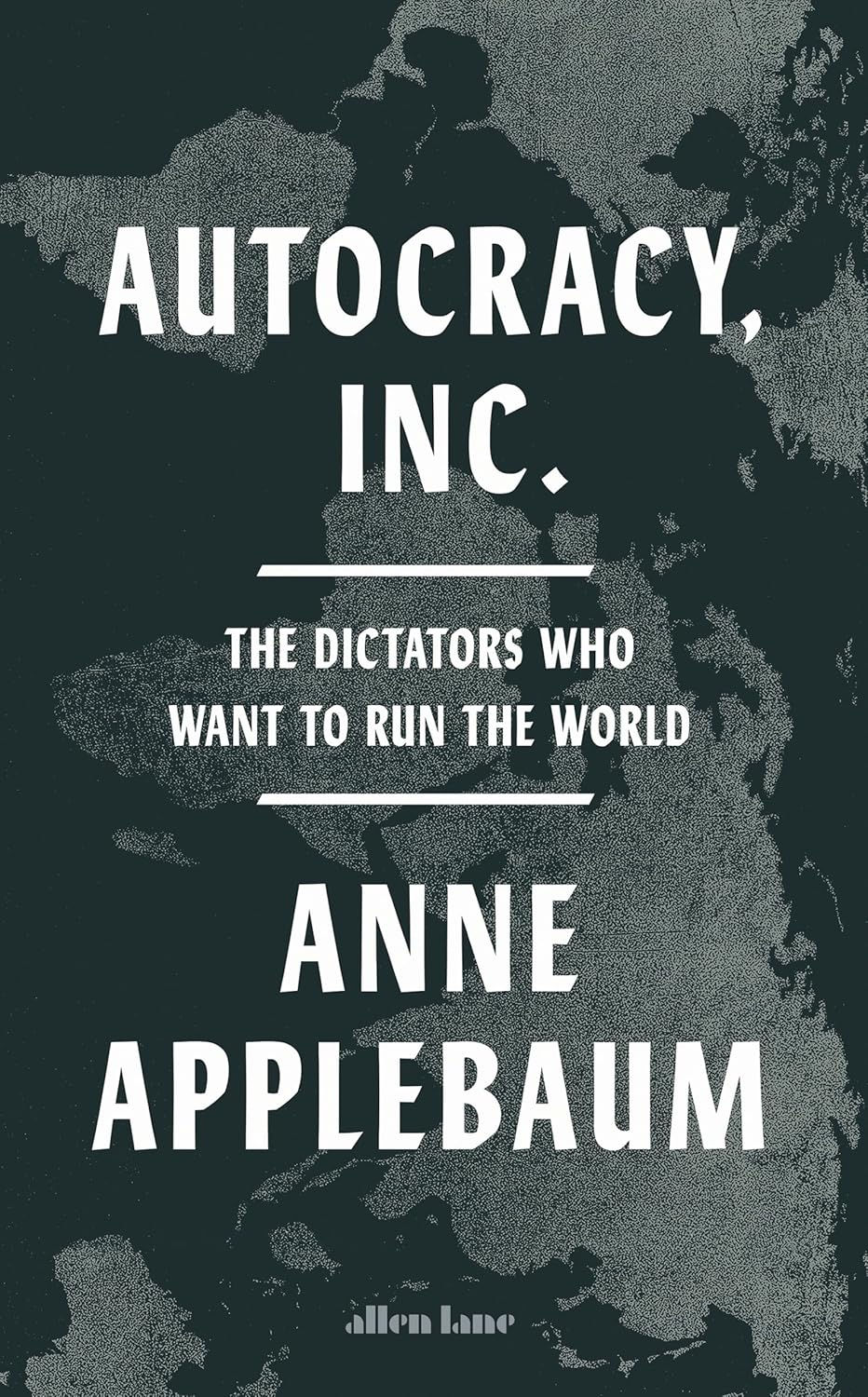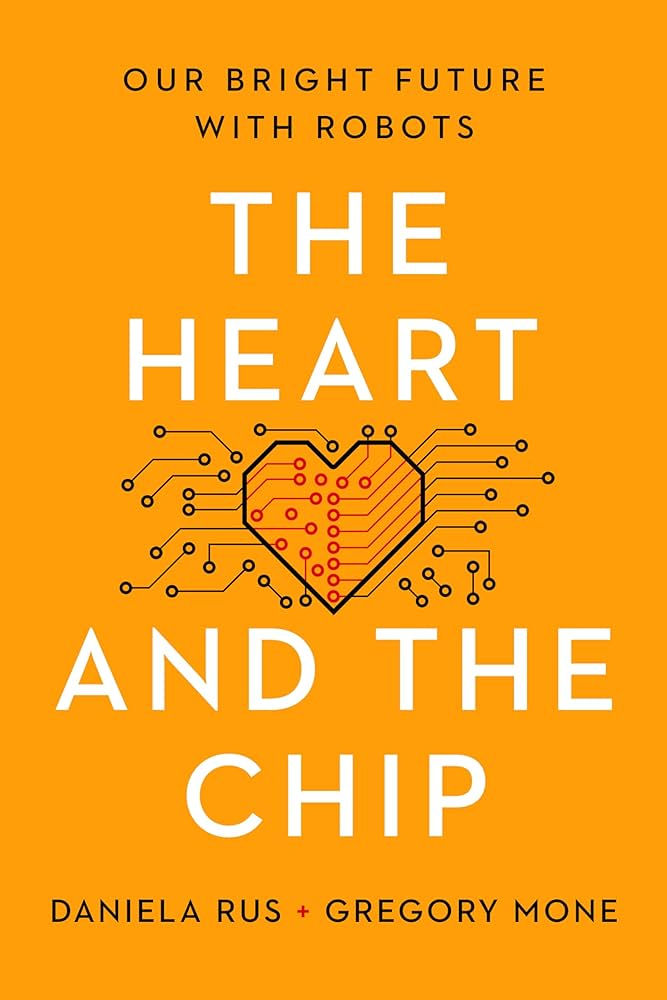
As the calendar year draws to a close, I am pleased to share a selection of book titles that might be inspiring, engaging, thought-provoking, or simply enjoyable to read during the upcoming winter break.
This time, the focus is on themes such as geopolitics, artificial intelligence, climate, personal development, topics that are particularly relevant in today’s world, and the good life.
Geopolitics
Five titles on geopolitics. The first offers a rather bleak but perhaps realistic analysis of Putin's Russia. Following that is an account of the globally interconnected autocracies, including Russia, China, North Korea, Iran, Venezuela, and others. Then, a discussion on the role of scarce critical resources on the global stage. Then, an enlightening perspective on migration – a topic often misrepresented by populists in their demagoguery. Finally, although no one can predict the future, leaders are required to be prepared for the future. Here is a book on how to carry that responsibility.
Artificial Intelligence (AI)
Three titles on AI. The first provides insights and an overview unlike anything previously compiled and presented. Next, Dutch former politician and now Stanford academic Marietje Schaake examines the influence of Big Tech on democratic institutions. Lastly, a clear exploration of how robotics and AI are shaping our lives – an inevitable revolution, according to the authors.
Climate
On the topic of climate, I have selected three titles. One analyses the opportunities that economic science offers for sustainability. Another beautifully describes the role, value, and potential of trees in addressing the global climate crisis. Lastly, the perspective of a successful investor in green businesses.
Personal Development
In my professional practice, I engage daily with personal development. The different stages of life are often a subject of discussion. A beautiful story on this topic has been written by Miranda July. Additionally, an inspiring book about achieving ambitions without over stepping your own boundaries.
The Good Life
Finally, to celebrate the good life, a book that links great works of art from history with exquisite cooking and dining. Preferably shared with your loved ones during the festive season. That is exactly what I plan to do. Looking forward to reconnecting with you in the New Year!
Warm regards,
Aegeus
GEOPOLITICS

A short, urgent book with a disquieting conclusion. The author, a longtime Russia watcher, makes the case that Putin’s ambitions do not stop at the border of Ukraine. He believes that a full-scale Russian military assault on Europe is possible — and that the withdrawal of the American security guarantee would turn a possibility into a probability. Europe, as he illustrates, is woefully unprepared for this turn of events.

Despots share an enemy: checks on power and the democratic world that espouses them. This short, urgent book describes how today’s strongmen have spun a network of mutual support.

Governments across the world are eager to secure supplies of the critical minerals needed for the batteries, solar panels and other technologies central to the energy transition. But as Reuters journalist Scheyder writes, extracting these minerals is tough. Mining companies face an array of opponents and China has a stranglehold on the business.

All human beings have ancestors who were migrants. For some, those ancestors were their own parents. For others, this history goes further back. But humans have always moved. This excellent book explores both this history and the embattled present. Goldin notes that despite the current hysteria, the proportion of the world’s population living in countries other than where they were born has been steady at about 3 per cent. He notes, too, that demographic trends, notably low birth rates and long life expectancies in many richer countries, make migration almost inevitable.

It is impossible to foresee the future. Yet that does not mean we know nothing about it. In this balanced analysis, the authors, both affiliated with the consultancy firm Boston Consulting Group, advance three sensible propositions about our knowledge of what lies ahead. First, we will never have a “master-model” of the future. We have to rely, instead, on judgment informed by data, understanding of context and knowledge of history. Second, ignore the doom saying so characteristic of the media. Third, be eclectic. The authors recommend “rational optimism”. For business leaders, that must make sense. Risks, after all, include opportunities.
ARTIFICIAL INTELLIGENCE

"Supremacy: AI, ChatGPT and the Race That Will Change the World" by Parmy Olson (Macmillan Business)
In Supremacy (Financial Times business book of the year 2024), Bloomberg columnist Olson focuses on the competition between Demis Hassabis, co-founder of DeepMind, and Sam Altman, his counterpart at OpenAI. Khalaf said Olson “brilliantly frames the development of artificial intelligence as a thrilling race to master the technology, build a business, and dominate the technological future”. The book also explores the tension between the entrepreneurs’ initial lofty ambitions to ensure AI serves the world, and the commercial pressures exerted by their deep-pocketed backers, Google and Microsoft. Schroders’ former chief executive Peter Harrison, another judge, said the book provided “deep insights into the defining technology of our age that are impossible to find elsewhere”.

Stanford’s Schaake is a renowned expert on the consequences of the rise of the tech sector. In this book, she analyses one of the most important consequences of all — that for democracy. She is no digital reactionary: she is well aware of the benefits that the new technologies can bring, indeed have brought. But the sector’s economies of scale and scope have also brought vast concentration of corporate power. The result is what she calls the “tech coup”, the shift of power from public and democratic institutions to companies. This, she insists, “must stop”. She is right. We are citizens, not only consumers.

Rus, a professor at MIT, and Mone a professional writer, seek to answer this big question of our era. Inevitably, given what Rus does, they adopt a largely positive view, boldly describing the revolution in robotics and artificial intelligence as one offering “tremendous opportunity” to humanity. But it is also one that threatens disruption and even danger. Whether one likes it or not, this revolution is coming. Prepare for it: read the book.
CLIMATE

Rebonato has been a physicist and is now a professor of finance at the EDHEC School of Business in Paris. In this book, he shows how and why we should apply economic theories to the challenge of climate change.In particular, three economic ideas — “scarcity”, “externalities”, and “strategic interactions” — are fundamental. Scarcity matters because managing climate change will impose economic costs. Externalities matter because the problem itself is the result of market failures. Finally, “freeriding” matters because agents (rationally) hope to get away with doing nothing, while others make the needed changes. What will be the outcome of these three if they are neither understood nor addressed? Disaster.

There are 3trn trees on Earth. This arboreal adventure takes you up mighty trunks and into blazing forest fires. The dozen species chronicled show how much the lives of trees are entwined with those of people and culture.

Billionaire investor Tom Steyer says he spent “between three and 10 billion dollars — and probably a lot closer to 10” to focus on climate activism. This lively book reveals the battles he had with storied upholders of the fossil-fuelled status quo, and how others are making everything from food to steel greener.
PERSONAL DEVELOPMENT

A novel that delves into the life of a 45-year-old artist and writer from Los Angeles. Feeling confined by her domestic life with her husband and child, she plans a solo road trip to New York to rekindle her creativity and independence. However, shortly into her journey, she detours to Monrovia, California, where she becomes entangled in an emotional affair with a younger man named Davey. This unexpected relationship prompts her to reevaluate her desires, leading to further explorations of intimacy and self-discovery, including a subsequent relationship with a woman. The novel examines themes of personal and sexual freedom, self-discovery, and the complexities of human relationships.

Explores the concept of achieving meaningful work and long-term goals without succumbing to the constant pressure of modern productivity culture. Newport critiques the relentless hustle and "pseudo-productivity" promoted in many workplaces, arguing that it leads to burnout and shallow accomplishments.
Instead, he advocates for "slow productivity", a philosophy centered on intentionality, focus, and sustainability. This approach encourages individuals to work at apace that prioritizes depth and impact over sheer output, aligning efforts with personal values and well-being. Newport provides practical strategies for protecting your time, reducing overwhelm, and achieving a fulfilling balance between professional and personal life.
The book serves as a guide for navigating the post-pandemic workplace, where boundaries and priorities have shifted dramatically.
PERSONAL LIFE

A celebration of the lemon’s rich history, cultural significance, and culinary versatility. This beautifully crafted book, published by Taschen, blends art, design, and gastronomy, showcasing the lemon’s presence in everything from ancient Egyptian murals to Renaissance paintings and modern kitchen creations.
The book combines engaging stories about the lemon’s symbolic and artistic roles with practical recipes that highlight its culinary potential. It's an inspiring and delightful exploration of how this humble citrus fruit has influenced art, culture, and cuisine throughout history. Perfect for food lovers, art enthusiasts, and anyone who enjoys discovering the connections between the everyday and the extraordinary.



Comments